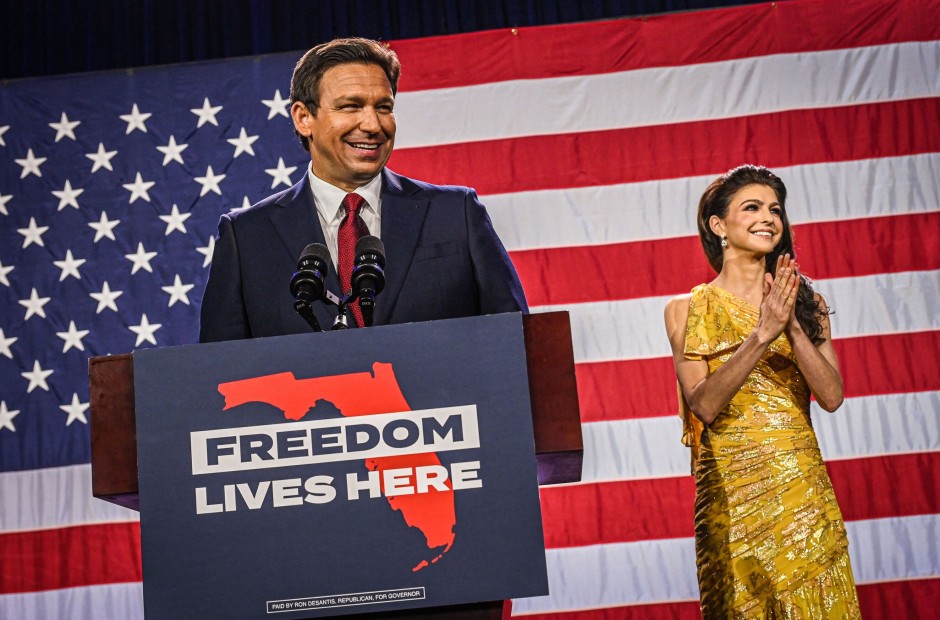
Ahen the victorious Governor Ron DeSantis stepped before his supporters in Tampa, Florida yesterday, the propaganda song “Sweet Florida” blared out of the rattling speakers. A musically concise country rock song that the Van Zant brothers say they wrote as a companion piece to “Sweet Home Alabama” for the Republican governor of the sunshine state: “The press doesn’t like him, but he gets his stuff done. He stands up for what he believes. So don’t come here to change things.”
What kind of “things” DeSantis manages from the point of view of the two country singers, for example, is mentioned a little later. Namely that “the children can go to school and we can go to church on Sunday”. Apart from the fact that no causal connection can be meant here – in the sense of compulsory Sunday school so that the faithful parents can go to church undisturbed – the song in its naive panegyric also falls a little short of what is usually the case with DeSanti’s biggest competitor booming from the speakers.
Trump wants to stop him
No, he doesn’t mean his Democratic opponent Charlie Crist, but the father of his own party: Former President Trump, who last week once again scrambled down the gangway of his private jet to the sounds of Lee Greenwood’s “God Bless the USA” and climbed into the apparently intends to announce his renewed candidacy for the 2024 presidential election in the next few days. Quite a sign of uncertainty, as some analysts believe, because he wants to put a stop to the increasing power of DeSantis.
Because while Trump is only moderately enthusiastic about the outcome of the midterms – some of his candidates, for example in Georgia, failed, the hoped-for “red wave” did not materialize – DeSantis is the outshining winner. And so his victory speech sounded not like the acceptance letter from a re-elected governor, but like a candidate running for president. DeSantis cried that not only had they won an election, they had “rewritten the political map.” Above all, that part of his speech stood out in which DeSantis attacked the “woke agenda” of liberal politicians: millions of Americans had allegedly left their homeland for fear of woken legislation and fled to him in the “promised land” Florida. Arch-conservative De Santis shouted in the style of a crescent tricolon: “We fight the woke in legislation. We fight the woke in schools. We fight the woke in the corporations.”
No word came up more often in DeSanti’s victory speech than the signal word “woke.” He did not call for a fight against inflation or high fuel prices or even against immigration, but identified the decisive opponent in the vague conceptual field of moral politics. That’s remarkable. Not only because Trump’s most dangerous opponent within the party apparently senses an opportunity here to set himself apart from his rival. But also because another political candidate could fall into the trap that the American political scientist Mark Lilla identified in a highly acclaimed essay for the New York Times in 2016 as decisive for the defeat of the Democrats against Trump.
disappointed hopes
According to Lilla’s pointedly summarized analysis, Hillary Clinton focused too much on questions of identity politics during the election campaign and thus gave the impression of losing sight of the big picture. If DeSantis now – of course under radically opposite circumstances – zeroes in on the woke as a central political field, he could have set himself a trap. The question of whether that would be good or bad in view of DeSanti’s right-wing extremist to anti-state attitudes is another matter. In any case, the hope for a “better Trump” could be dashed faster than the word “woke” is old.









